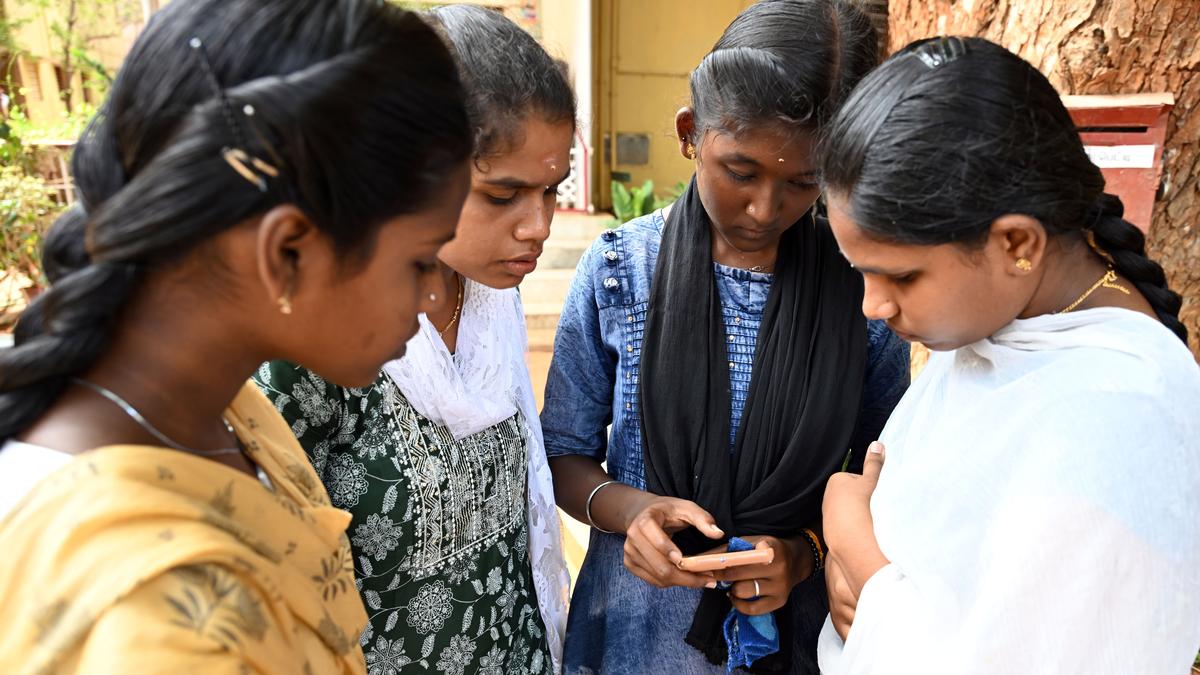
Ariyalur district secures first place in Tamil Nadu State Board Class X exams
The Hindu
Ariyalur district, which stood sixth among the districts in terms of pass percentage in the State Board Class X exams last year, has climbed to the top position this year, thanks to the concerted efforts of the teachers and the district authorities
Ariyalur district, which stood sixth among the districts in terms of pass percentage in the State Board Class X exams last year, has climbed to the top position this year, thanks to the concerted efforts of the teachers and the district authorities.
The pass percentage in the district rose to 97.31 this year from 95.40 recorded last year. Of the 9,565 students, including 4,902 boys and 4,663 girls, who took the exam in the district, 9,308 have passed.
T. Vijayalakshmi, Chief Education Officer, Ariyalur, told The Hindu that consistent follow up with schools was the key to the success. “We had great support from the district administration. The Collector took special interest in our online meetings and reviewed the performance of almost every school in the district, which was huge motivation for us,” she said.
Tiruchi district showed a marked improvement in overall pass percentage by climbing to the fifth position among the districts this year, from last year’s eight spot. A total of 33,176 students — 16,648 boys and 16,528 — appeared for the exam. Of these, 31,594 passed — 15,500 boys and 16,094 girls. The pass percentage of the district is 95.23 which is higher than previous year pass percentage of 94.28.
In Perambalur district, of the 7,865 students, 7,454 students — 3,985 boys and 3,469 girls —passed the exams. The pass percentage of the district is 94.77 which is lower than last year’s percentage of 97.67.
In Karur district, of the 11,366 students, 10,638 students — 5,133 boys and 5,505 girls — passed the exams. The pass percentage of the district is 93.59 as against 91.49 recorded last year.
Of the 21,856 students — 10,770 boys and 11,086 girls — who appeared for the exam in Pudukottai district, 20,073 (9,562 boys and 10,511 girls) cleared it. The pass percentage of the district was 91.84 which was lower than 92.31 recorded last year.

“Writing, in general, is a very solitary process,” says Yauvanika Chopra, Associate Director at The New India Foundation (NIF), which, earlier this year, announced the 12th edition of its NIF Book Fellowships for research and scholarship about Indian history after Independence. While authors, in general, are built for it, it can still get very lonely, says Chopra, pointing out that the fellowship’s community support is as valuable as the monetary benefits it offers. “There is a solid community of NIF fellows, trustees, language experts, jury members, all of whom are incredibly competent,” she says. “They really help make authors feel supported from manuscript to publication, so you never feel like you’re struggling through isolation.”

Several principals of government and private schools in Delhi on Tuesday said the Directorate of Education (DoE) circular from a day earlier, directing schools to conduct classes in ‘hybrid’ mode, had caused confusion regarding day-to-day operations as they did not know how many students would return to school from Wednesday and how would teachers instruct in two modes — online and in person — at once. The DoE circular on Monday had also stated that the option to “exercise online mode of education, wherever available, shall vest with the students and their guardians”. Several schoolteachers also expressed confusion regarding the DoE order. A government schoolteacher said he was unsure of how to cope with the resumption of physical classes, given that the order directing government offices to ensure that 50% of the employees work from home is still in place. On Monday, the Commission for Air Quality Management in the National Capital Region and Adjoining Areas (CAQM) had, on the orders of the Supreme Court, directed schools in Delhi-NCR to shift classes to the hybrid mode, following which the DoE had issued the circular. The court had urged the Centre’s pollution watchdog to consider restarting physical classes due to many students missing out on the mid-day meals and lacking the necessary means to attend classes online. The CAQM had, on November 20, asked schools in Delhi-NCR to shift to the online mode of teaching.









